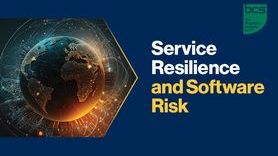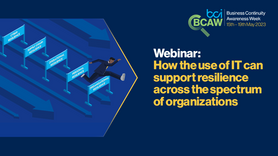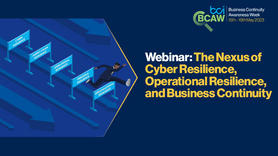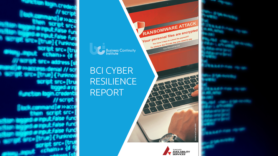The cybersecurity skills gap: A growing threat to organizational resilience
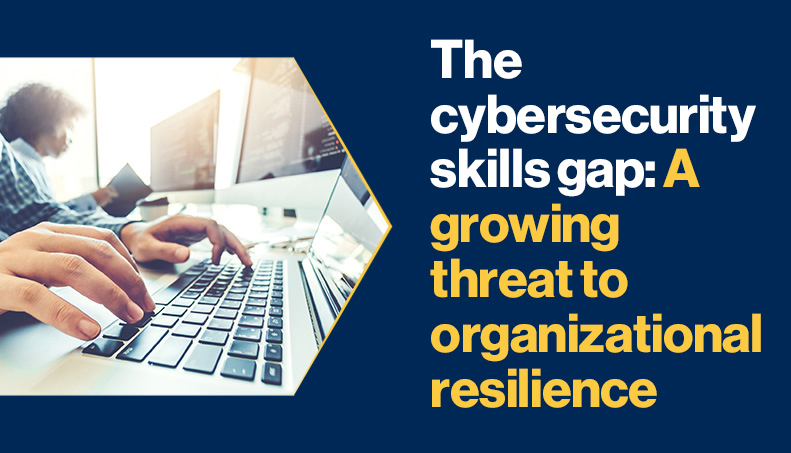
At this year’s World Economic Forum Annual Meeting (January 20-24), global leaders gathered to address current challenges, with the landscape of cybersecurity being noted as a major area of interest. [1] According to the Allianz-Risk-Barometer, [2]
cyber incidents are top of the list of concerns in Europe, North and South America, Africa and Middle East regions in 2025. It was also at the top of the list for the first time in Brazil, Colombia, South Africa, Philippines, and Morocco.
The shortage of skills to combat security breaches has become urgent, especially within sectors that deal with sensitive data, for example, government and finance, which are often targeted for ransomware. The UK government recently received a warning from the watchdog over the lack of skills in cyber security. [3] The rapid evolution of AI is making attacks harder to identify, which is contributing to the need for more skills to combat breaches.
The public sector is not the only area facing skills shortages where cyber security is concerned with industries including media, professional services, technology, and telecommunications citing breaches as their number one risk factor. For the first time, it was also reported as the top concern for the aviation, chemicals, and entertainment industries. [3]
Federica Livelli, BCI’s Vice Leader of the Cyber Resilience Special Interest Group, explained the challenges faced by Italy: “The digital realm faces a dual challenge: low cybersecurity investment and insufficient digital skills. This is limiting the digitalization and competitiveness of Italian companies.”
Solutions to the cybersecurity skills gap
While it’s important to stay on top of what’s going on around the world, it’s crucial to be aware of preventative measures to protect your organization.
Investing in ongoing training and development is key, as is breaking down silos, which are a common issue as highlighted in our BCI Operational Resilience Report 2024, where teams fail to pass on valuable information to other departments, which could be used to protect the organization. [4]
Fostering a culture of cybersecurity awareness is another effective preventative measure, and company-wide training should be considered so that every department has an understanding of the potential implications of a breach.
Support your IT team, and in turn, protect your mission-critical data by making sure they are not using outdated tools. Legacy tools are often targeted by hackers as they are less robust and easier to break into.
Federica also explained how at government level, the cyber security skills gap is being addressed, “The Italian government is developing its "National Cybersecurity Strategy 2022-2026", which includes the promotion of cybersecurity culture through initiatives focusing on new technologies, incentivizing technical-scientific careers, updating educational content, and deploying funds for specialized training across public and private sectors.” She also mentioned how numerous initiatives are underway to bridge the cybersecurity gap in Europe. "In late 2024, the European Commission launched a call for participation in a new Industry-Academia Network, part of the EU Cybersecurity Skills Academy. This innovative network aims to strengthen ties between industry and academia, enhancing cybersecurity skills and preparing Europe's IT workforce for the sector's rapidly evolving demands.”
Get valuable insights from practitioners on how they have tackled cybercrime in their organizations from our Cyber Resilience Report, which can be used as a benchmarking tool to review your cyber strategy. [5]
[1] World Economic Forum Annual Meeting 2025 | World Economic Forum
[2] Allianz-Risk-Barometer-2025.pdf
[3] Cyber threat against UK Government severe and advancing quickly, warns watchdog
[4] BCI Operational Resilience Report 2024 | BCI
[5] BCI Cyber Resilience Report 2023 | BCI












